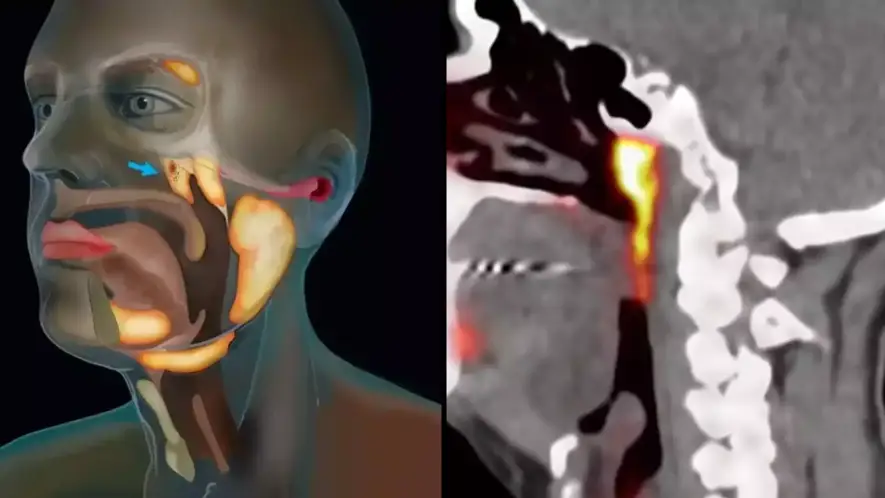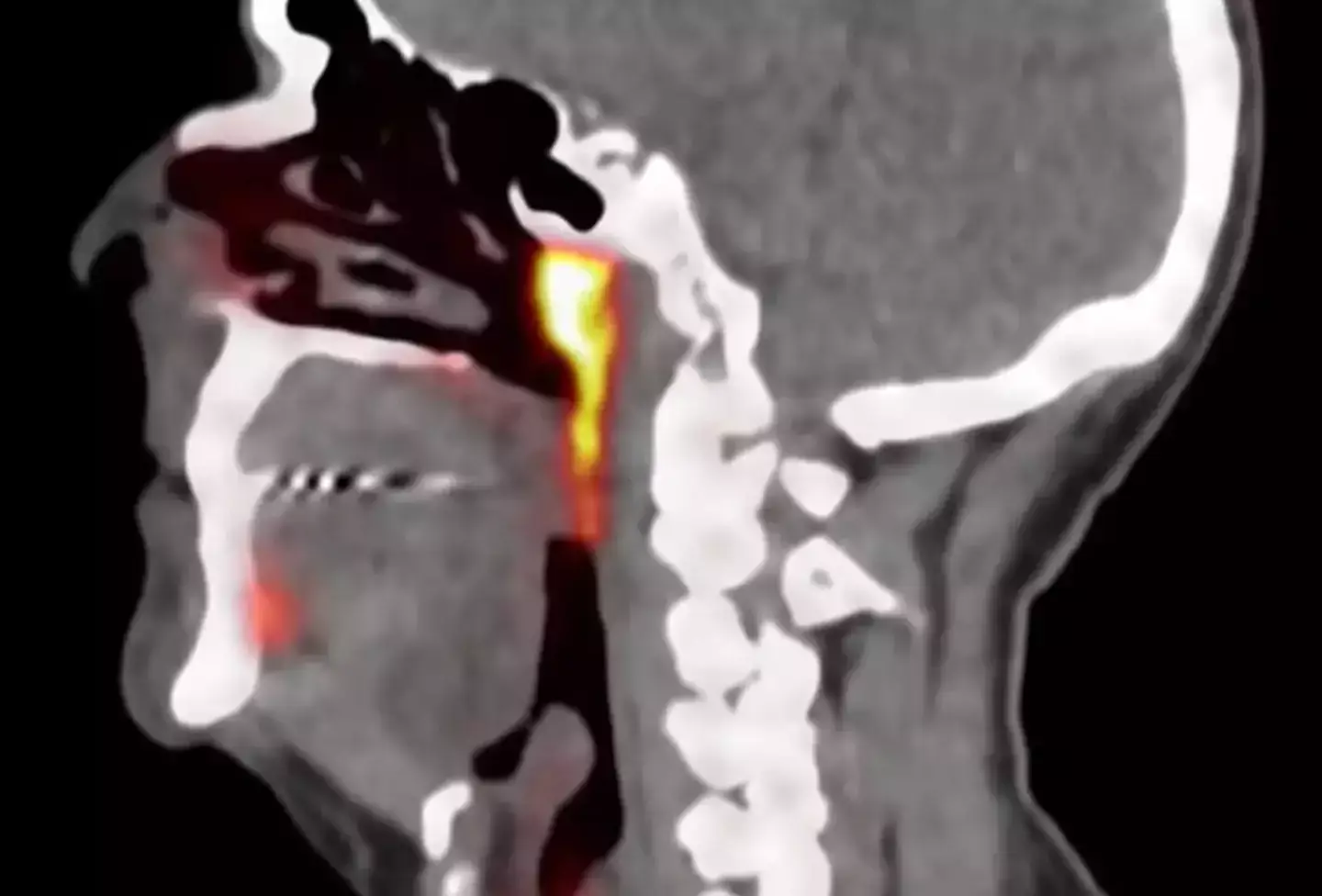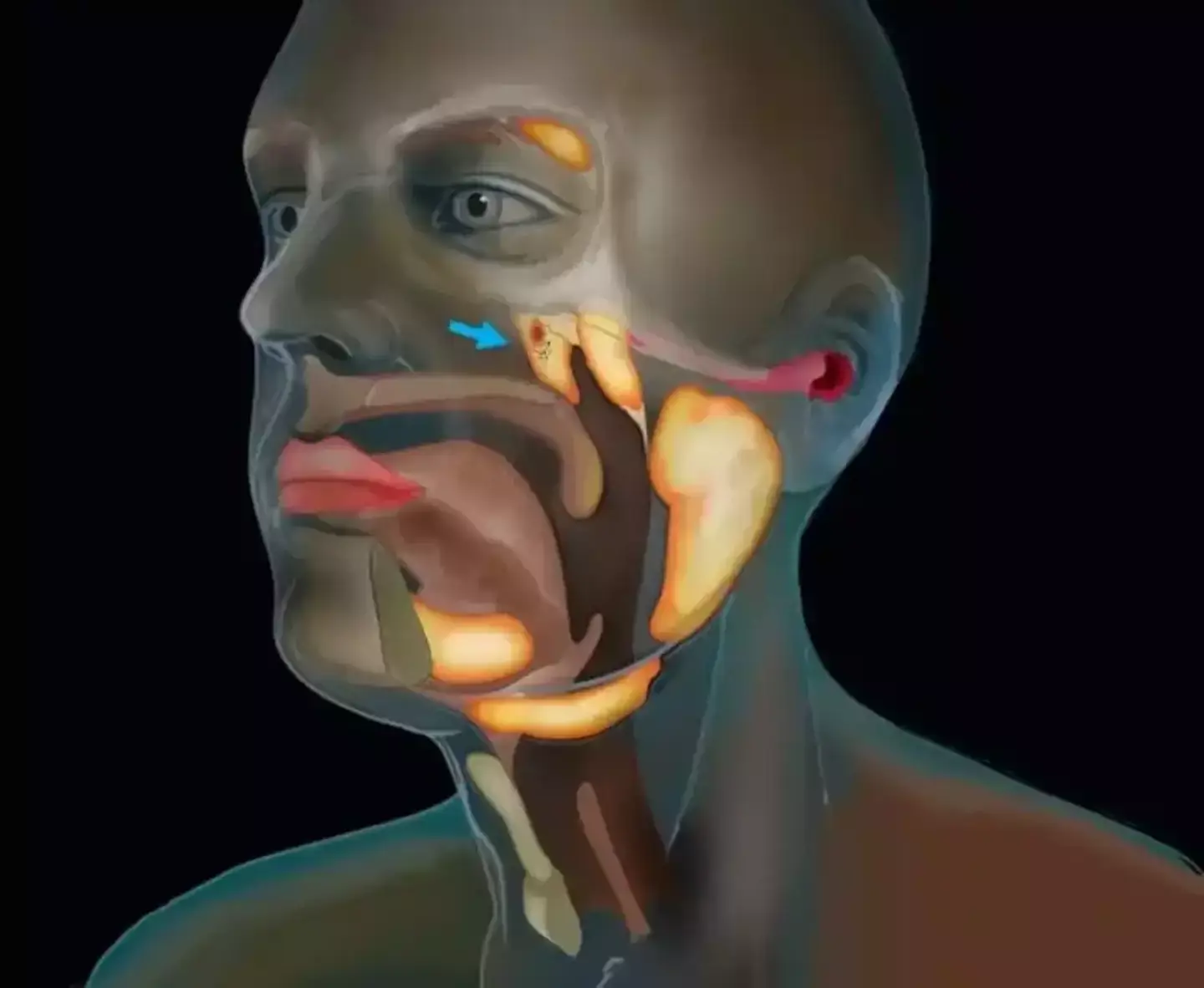
A team of scientists discovered a new organ in the human body while they were researching something very different.
The experts from the Netherlands were studying prostate cancer when they made a scientific breakthrough at the other end of the body.
It turns out this recently discovered organ was right under our noses this whole time, or more accurately just behind it.
The team of scientists were working at the Netherlands Cancer Institute and carrying out a series of CT and PET scans on patients who had been injected with radioactive glucose.
Advert
They weren't just doing this for no reason, as the glucose would make tumours glow on the scans and be easily detectable.

It works by binding to the protein PSMA, which is found more often in prostate cancer cells.
By good fortune, the PSMA protein is also very good for detecting saliva glands and lo and behold, when looking at the results, the experts noticed a couple of spots inside the human head were also lighting up.
This led them to expect that salivary glands would be contained within, and it's believed that these particular glands are in place to lubricate your upper throat behind your nose and mouth.
A bit more searching uncovered what the team dubbed the 'tubarial salivary gland', which is located behind your nose near the bit where your nasal cavity meets your throat.
It's basically right behind your face and the scientists made sure they weren't just lucky one time by examining 100 patients.
They all had the 'tubarial salivary gland', as did a pair of cadavers that the team examined, so were pretty sure that means we've all got them.

In a bit of a scientific happenstance when radiotherapy is performed on a patient's head or neck, doctors try to steer as clear as possible from the salivary glands as they can become damaged, causing patients problems with swallowing, eating or speaking.
On the other hand, before the discovery of the glands, that part of the body was targeted with radiotherapy, which might have led to some unwitting side effects such as your mouth feeling dry after treatment.
The human body has three other major salivary glands, all located in the head but one where the tubarial ones can be found.
The parotid glands are the main ones and provide the saliva which helps you chew and swallow your food.
Beneath the lower jaw are the submandibular glands, which are responsible for most of the saliva in your mouth, you can feel them just slightly up from your Adam's apple and they're about two inches apart.
Last and possibly least, there's the sublingual glands which are below the tongue, they're just doing what they can to help out.
Topics: Health, Science, Technology